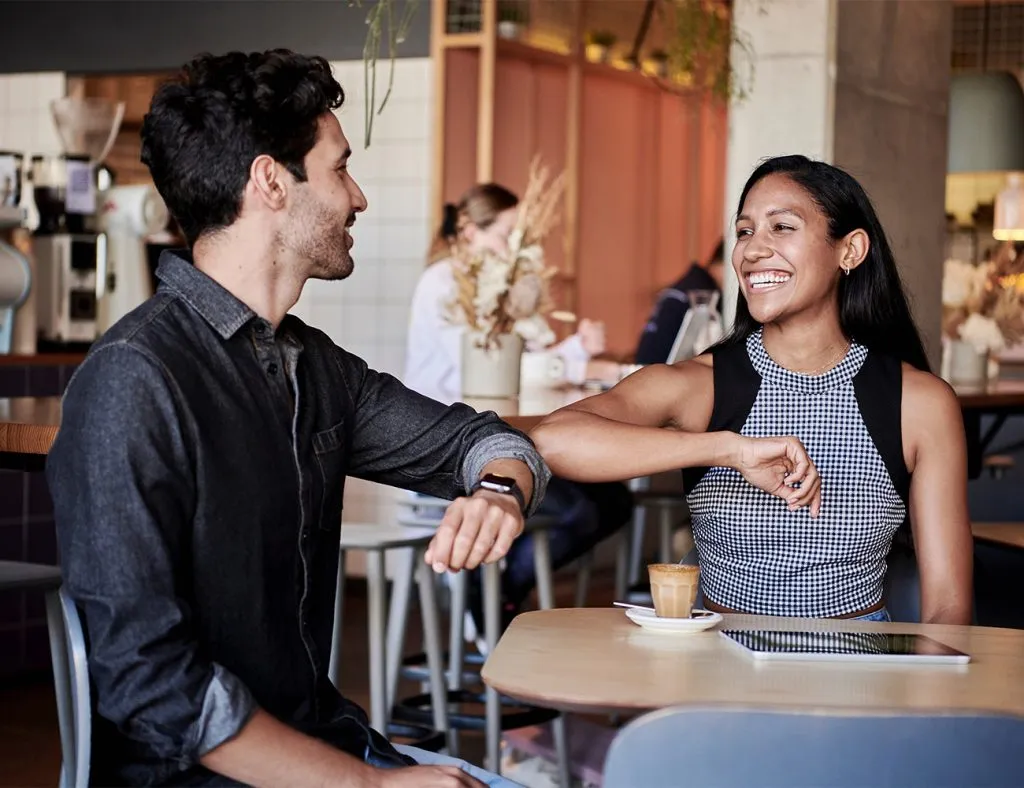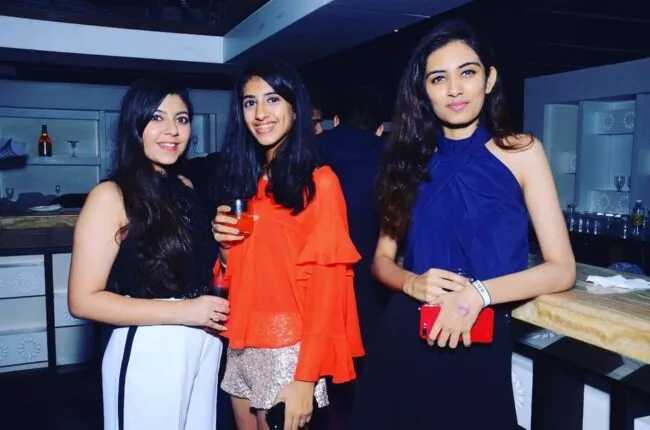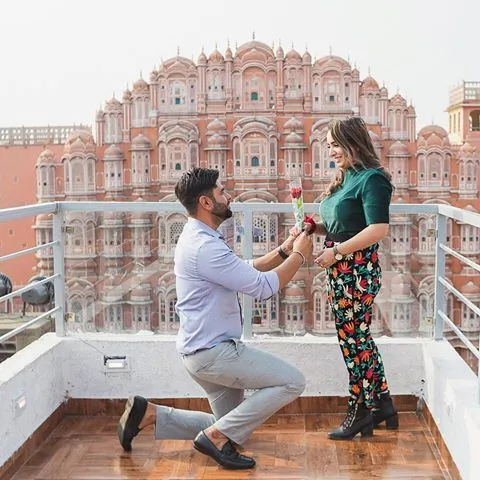The Ultimate Guide to First Date Tips - What to Do and What to Avoid
First dates can be both exciting and nerve-wracking. They mark the beginning of a potential relationship and provide an opportunity to learn about another person in a relaxed environment. However, making a good first impression is essential, and knowing what to do—and what not to do—can set the stage for a successful connection. In this guide, we will explore practical tips, common pitfalls, and expert advice to help you navigate your first date with confidence.
Preparing for the Date
Before you meet your date, take some time to prepare. This preparation goes beyond choosing an outfit; it involves planning your mindset and ensuring you are in the right headspace.
Know Your Intentions Reflect on what you are looking for in a relationship. Whether you are searching for something casual or a long-term connection, being clear about your intentions can help you choose the right venue and set realistic expectations for the date.
Research and Planning Select a venue that is comfortable and conducive to conversation. A quiet coffee shop, a casual restaurant, or a park can be great choices for a first meeting. Consider your date’s interests if you have some information about them. It shows that you care and have taken the time to plan something enjoyable. If the conversation is likely to flow better in a less formal setting, choose a place with a relaxed atmosphere.
Personal Presentation Choose an outfit that reflects your personality and is appropriate for the setting. Ensure that you feel comfortable in what you wear, as confidence often comes from feeling good about your appearance. Grooming is also essential; a neat haircut, clean nails, and a pleasant fragrance can make a positive impression.
Mindset and Confidence Adopt a positive attitude. First dates can be unpredictable, and it is important to remain flexible. Confidence is not about pretending to be someone you are not—it is about being comfortable in your own skin. Remind yourself that this is an opportunity to meet someone new and learn about them, not a high-stakes test.
Do’s for a Successful First Date
Arrive on Time Punctuality is a sign of respect. Arriving a few minutes early shows that you value your date’s time and are excited to meet them. If unforeseen delays occur, communicate as soon as possible and apologize for the inconvenience.
Be Present and Engaged Focus on your date during the meeting. Put away your phone or any other distractions. Active listening is key; show interest in what your date is saying by maintaining eye contact and nodding occasionally. Ask follow-up questions to demonstrate that you are engaged in the conversation.
Practice Open Body Language Body language can speak volumes. Smile, maintain an open posture, and avoid crossing your arms. These nonverbal cues signal that you are approachable and interested in the conversation.
Show Genuine Interest Ask about your date’s hobbies, work, and interests. Even if you have common topics, let the conversation flow naturally. Ask questions that encourage them to share more about themselves, such as what they enjoy doing in their free time or what sparked their passion for their career.
Share About Yourself While it’s important to learn about your date, it is equally essential to share your own stories. Balance the conversation by discussing your interests and experiences. Being genuine and open can help create a comfortable atmosphere for both of you.
Keep the Conversation Light First dates are not the time to delve into heavy topics like politics, religion, or past relationships. Instead, stick to light and engaging topics such as travel, hobbies, favorite movies, or fun experiences. This approach helps to build rapport without overwhelming either party.
Respect Personal Boundaries Everyone has different comfort levels when it comes to personal space and topics of discussion. If your date seems hesitant to talk about something, respect their boundaries and steer the conversation to a more comfortable subject.
Compliment Sincerely Everyone appreciates a genuine compliment. Whether it is about your date’s smile, their sense of humor, or something unique about them, sincere compliments can help build rapport. However, overdoing it or being insincere can have the opposite effect.
Mind Your Manners Simple gestures, such as saying “please” and “thank you” or holding the door open, go a long way in making a positive impression. Good manners reflect your upbringing and consideration for others.
Follow-Up After the Date If the date went well, let your date know by following up with a short message expressing your gratitude and interest in meeting again. This can be a simple text or call, depending on your comfort level and the communication style established during the date.
Avoiding Common First Date Mistakes
Talking Too Much About Yourself While sharing about yourself is important, dominating the conversation can come across as self-centered. Make sure to ask questions and give your date ample time to share their thoughts and experiences. A balanced conversation leads to a more enjoyable experience for both parties.
Discussing Past Relationships Bringing up ex-partners or past relationships can create discomfort and lead your date to question your emotional availability. Keep the conversation focused on the present and the exciting possibility of what the future might hold.
Overusing Technology Checking your phone repeatedly or scrolling through social media during the date can be interpreted as disinterest. Your date deserves your full attention, so try to limit phone usage unless it is necessary.
Getting Too Personal Too Quickly While it can be tempting to dive into deep conversations, revealing too much about yourself on a first date might be overwhelming. Keep the conversation at a comfortable level, and allow intimacy to develop naturally over time.
Discussing Controversial Topics Sensitive topics such as politics, religion, or money can lead to disagreements or discomfort on a first date. It’s best to avoid these subjects until you have established a stronger connection and understand each other’s perspectives better.
Overindulging in Alcohol If the date involves drinks, moderation is key. Drinking too much can impair your judgment and affect your behavior, making it difficult for your date to see the real you. Stick to a reasonable limit and focus on enjoying the conversation.
Appearing Disinterested Nonverbal cues can sometimes reveal disinterest. Avoid looking around the room or appearing bored. Engage with your date and show enthusiasm through your expressions and body language.
Being Overly Critical A first date is not the time to criticize your date’s opinions, appearance, or choices. Respect their individuality, and keep an open mind. Even if you have differences, appreciate that diversity can lead to interesting discussions and learning opportunities.
Financial Expectations Discussing money or expecting your date to cover all expenses can be awkward. It is a good idea to discuss how you want to handle the bill beforehand if possible. A fair approach can be to split the bill or alternate paying for dates in the future.
Reading Social Cues
Understanding Nonverbal Communication Much of communication is nonverbal. Pay attention to your date’s facial expressions, posture, and tone of voice. If they seem uncomfortable or disinterested, it might be a sign to change the topic or adjust your approach.
Adapting to the Situation Every date is different. The energy and dynamics can change based on various factors such as the venue, time of day, or the overall mood. Be flexible and ready to adjust your plans or conversation topics as needed.
What to Do If the Date Isn’t Going Well
Stay Respectful Sometimes, despite your best efforts, the chemistry may not be there. If you find yourself not enjoying the date, remain respectful. A polite conversation can still be an opportunity to learn and grow.
End the Date Gracefully If you feel that the connection isn’t right, you can end the date early. However, be honest without being harsh. A simple statement such as “I had a nice time, but I don’t feel we’re a match” can suffice. It is important to remain courteous and considerate.
Avoid Making a Scene If the date is not going well, try to keep your emotions in check. Avoid raising your voice or engaging in confrontations. Sometimes, the best course of action is to end the date and take some time to reflect on what you learned from the experience.
After the Date: Reflect and Learn
Take Time to Reflect After your date, take some time to think about what went well and what could be improved. Reflection can help you prepare better for future dates. Consider whether you felt a connection, if the conversation flowed naturally, and if you enjoyed the venue.
Ask for Feedback If you are comfortable, you might ask a trusted friend for feedback. Sometimes, an outside perspective can provide valuable insights into your behavior and help you improve your dating skills.
Keep an Open Mind Not every date will lead to a relationship, and that is perfectly fine. Treat each date as a learning experience. Every interaction teaches you more about what you are looking for in a partner, and about how you can be your best self on future dates.
Learning to Let Go If a date does not lead to a second meeting, do not dwell on it. Remember that compatibility is about both parties feeling a spark. Sometimes, even if you are a great match for someone else, it might not be the right time or situation. Accept it, learn from it, and move on with a positive outlook.
Building Confidence Over Time
Practice Makes Perfect First dates can be intimidating, but with each experience, you build confidence. Remember that everyone feels nervous, and it is completely normal. The more you date, the more you learn about yourself and how to connect with others.
Stay Positive It is easy to get discouraged after a few unsuccessful dates, but it is important to maintain a positive attitude. Focus on the fact that each date is a step towards finding a meaningful connection. Celebrate your small wins and the progress you make along the way.
Invest in Yourself Part of being a successful dater is ensuring that you are happy and confident in your own life. Engage in activities that boost your self-esteem and make you feel good. A well-rounded life can make you more attractive to potential partners.
Common Questions About First Dates
What should I talk about on a first date? Stick to light and engaging topics such as hobbies, favorite movies, travel experiences, and fun anecdotes. Avoid heavy subjects that could lead to discomfort.
How long should a first date be? There is no one-size-fits-all answer. A first date could be as short as 30 minutes or as long as a few hours. The key is to gauge the flow of conversation and ensure that both parties feel comfortable.
Is it okay to split the bill? Yes, many people prefer to split the bill on a first date. However, you can discuss this before the date to avoid any awkwardness when the bill arrives.
How do I know if there is a connection? Pay attention to both verbal and nonverbal cues. Do you find yourself laughing, maintaining eye contact, and engaging in a meaningful conversation? These are often good indicators that there is potential for a connection.
What should I do if I’m not interested in a second date? If you are not feeling a connection, it is best to be honest yet gentle. Express your appreciation for the time spent together and politely communicate that you do not see the potential for a future connection.
The Importance of a Follow-Up
Expressing Gratitude If you enjoyed your date, send a follow-up message thanking your date for the time spent together. A simple message can go a long way in showing that you value the experience.
Setting Expectations for Future Meetings If both of you felt a connection, a follow-up message can pave the way for planning another meeting. Mention something you enjoyed discussing or a common interest that could be explored further.
Learning When to Move On On the other hand, if you feel that there was no spark, it is best to let things end on a polite note. Not every date is meant to lead to a relationship, and every experience adds to your understanding of what you want.
Final Thoughts
First dates are a critical first step in the journey of finding love or a meaningful connection. They offer the chance to learn about another person in a low-pressure environment. By preparing ahead of time, practicing good communication, and being mindful of what to do—and what to avoid—you can make a lasting positive impression.
Remember that every date is a learning experience. Even if a date does not lead to a second meeting, it provides insights into your preferences, helps you build confidence, and prepares you for future opportunities. With the right mindset and practical tips, you can turn the nervous energy into an enjoyable experience that could lead to a lasting connection.
Keep experimenting with new venues, conversation topics, and approaches until you find what works best for you. Dating is as much about self-discovery as it is about finding someone compatible. Embrace the process, learn from every encounter, and most importantly, be yourself. The right person will appreciate you for who you are.
This guide is designed to help you navigate the sometimes challenging world of first dates. With these tips, you are better equipped to handle the excitement, nerves, and inevitable uncertainties that come with meeting someone new. Good luck, and may your next first date be the start of something wonderful!







